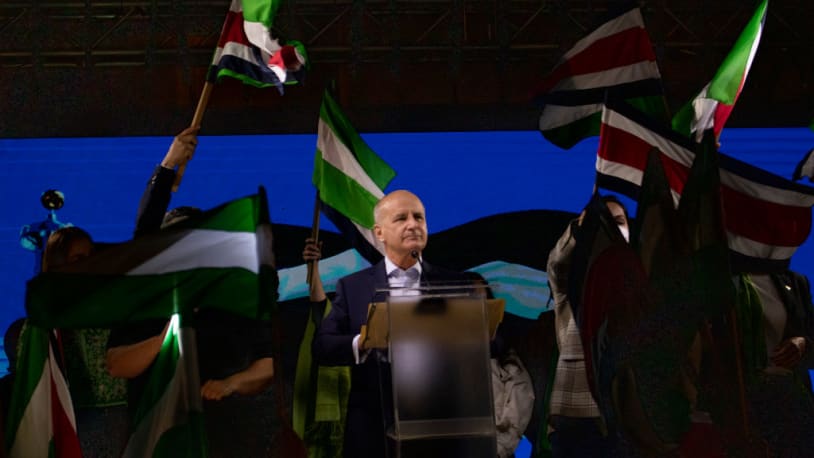
Costa Rican presidential election heads to runoff
Two candidates seeking Costa Rica’s presidency, an ex-president and a former finance minister, advanced to the April 3 runoff election after the first round of voting Sunday, the Buenos Aires Times reported Monday.
Pollsters expected a runoff. To avoid a second round of voting, the first-place candidate needs to receive at least 40 percent of the vote, a highly unlikely outcome in a crowded field of 25 candidates.
Still, there were a few surprises when the ballots were counted.
Former President José María Figueres, who led Costa Rica from 1994 to 1998 and was polling at around 17 percent, won 27 percent of the vote.
According to The Associated Press, “Figueres is nothing if not well-known to voters in Costa Rica; his father was three-time president José Figueres Ferrer,” who abolished Costa Rica’s army in 1948 and is “probably the country’s most important political figure of the last century.”
Economist Rodrigo Chaves, who served as the country’s finance minister from 2019 to 2020, finished second with nearly 17 percent of the vote, despite having polled in fourth place.
Both candidates are centrists.
Per the Times, both are also “tainted by scandal: Figueres was investigated for alleged financial misdeeds, and Chaves for sexual harassment. Both denied wrongdoing.”
Two candidates seeking Costa Rica’s presidency, an ex-president and a former finance minister, advanced to the April 3 runoff election after the first round of voting Sunday, the Buenos Aires Times reported Monday. Pollsters expected a runoff. To avoid a second round of voting, the first-place candidate needs to receive at least 40 percent of…
Two candidates seeking Costa Rica’s presidency, an ex-president and a former finance minister, advanced to the April 3 runoff election after the first round of voting Sunday, the Buenos Aires Times reported Monday. Pollsters expected a runoff. To avoid a second round of voting, the first-place candidate needs to receive at least 40 percent of…